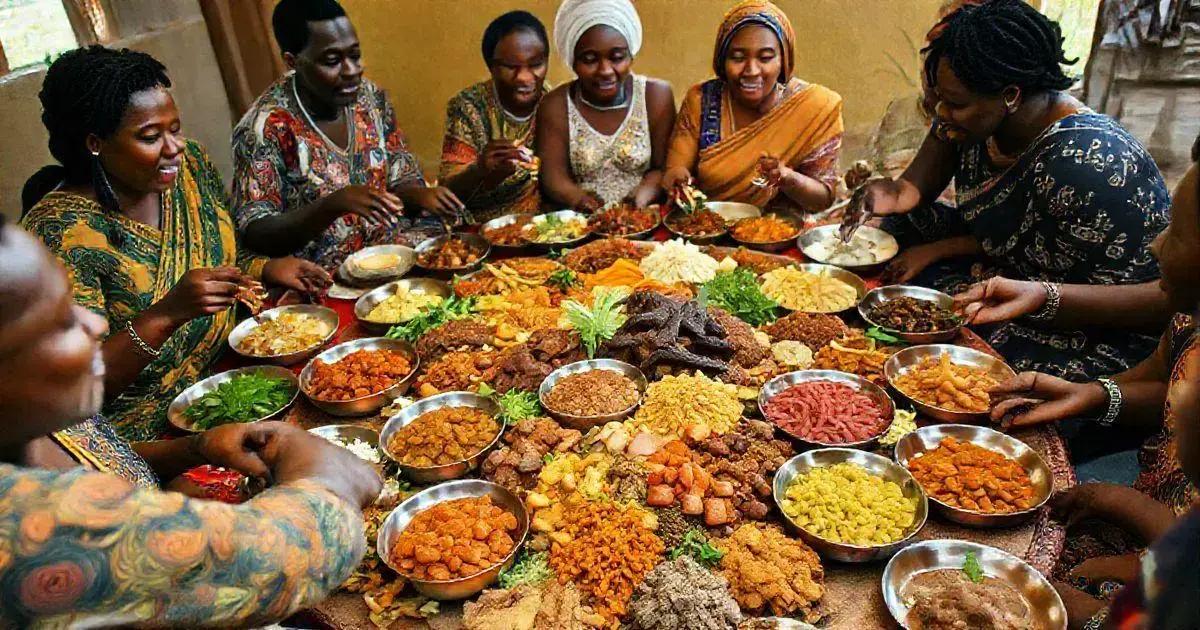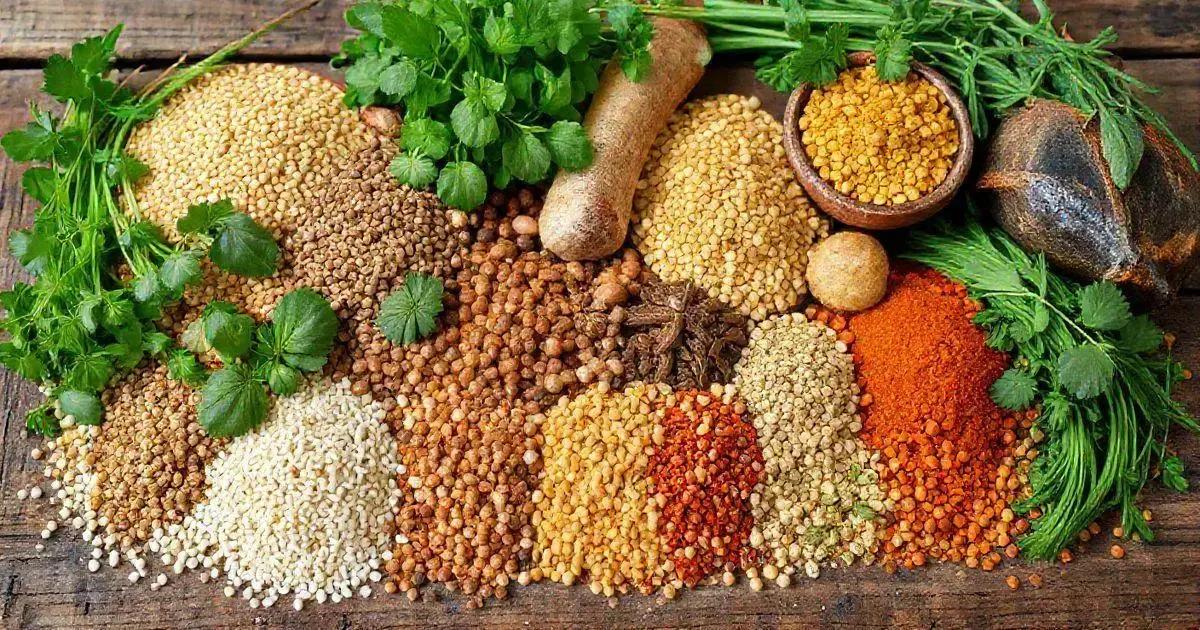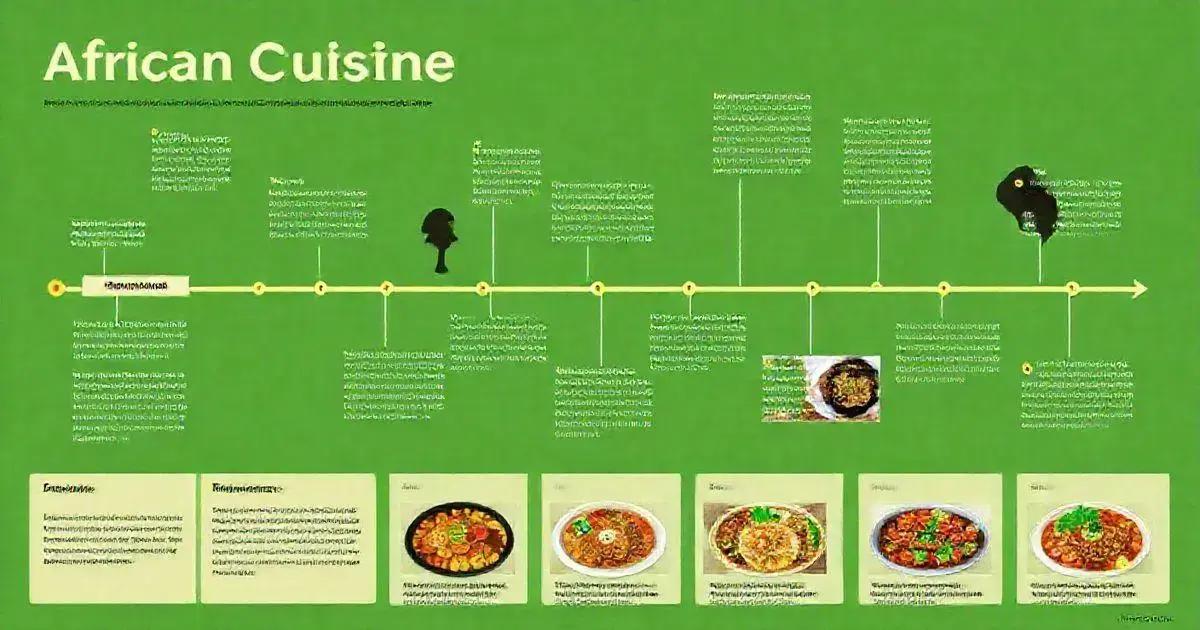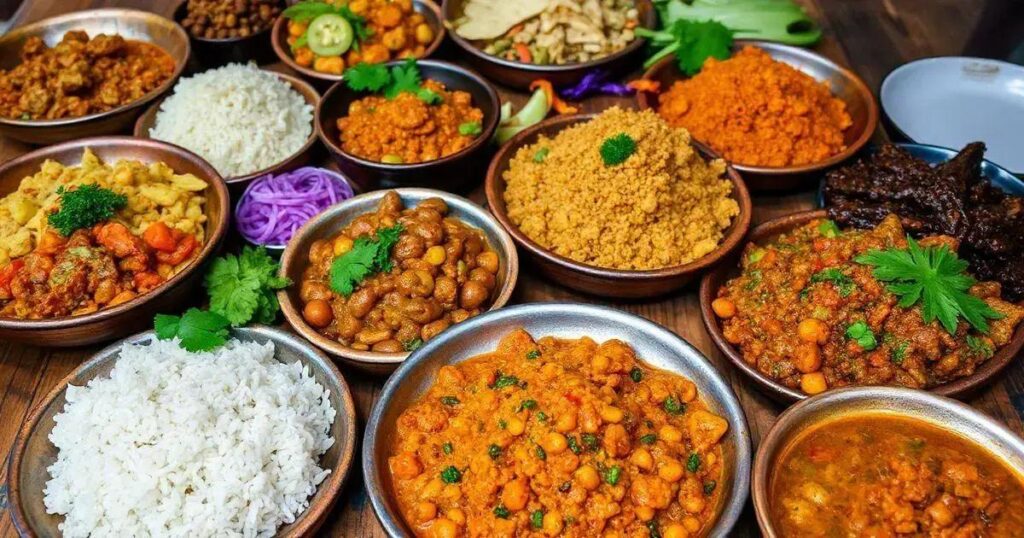African cuisine showcases a rich tapestry of flavors shaped by diverse culinary traditions, unique ingredients, and historical influences. Staple foods, vibrant spices, and communal eating traditions reflect the continent’s cultural heritage, while modern influences continue to evolve its recipes, offering exciting new culinary experiences.
Expert opinions on the African recipe reveal a vibrant tapestry of culinary heritage that spans the continent. With rich flavors and unique ingredients, African cuisine is a journey into diverse cultures and traditions. In this post, we will explore the culinary traditions across Africa, the unique ingredients that make these recipes special, and how African cuisine has evolved over time, attracting food lovers and chefs alike.
Culinary Traditions Across Africa

African cuisine is deeply rooted in its diverse cultures and traditions. Each region has its own unique culinary customs that reflect the lifestyle, geography, and history of its people. From savory stews to spicy grilled meats, every dish tells a story.
Regional Differences
In North Africa, spices like cumin and coriander are popular, leading to flavorful dishes such as tagines and couscous. In contrast, West Africa is known for its use of hot peppers and ingredients like cassava and yams, often found in jollof rice and efo riro.
Cooking Methods
Traditional cooking methods also play a significant role. Many African communities still practice cooking over an open fire, which adds a unique flavor to their food. Techniques such as fermenting and smoking are used to preserve ingredients and enhance taste.
Communal Eating
Eating in Africa is often a communal affair. Families and friends gather around a shared platter, reflecting the importance of togetherness and hospitality. Meals are more than just food; they are an opportunity to connect and celebrate life.
Cultural Significance
Culinary traditions are intertwined with rituals and celebrations. Foods are prepared for weddings, festivals, and religious ceremonies. Each dish served has a meaning, reinforcing cultural identity and heritage.
Understanding these culinary traditions provides insight into the rich diversity of African recipes. Exploring these flavors invites you to appreciate both the artistry and history behind what’s served on the table.
Unique Ingredients in African Recipes

Unique ingredients in African recipes reflect the continent’s rich biodiversity and cultural heritage. Each region incorporates ingredients that are local and readily available, creating distinct flavors.
Staple Ingredients
Staple foods like grains, legumes, and tubers play a vital role in many African diets. Cornmeal is a common base for dishes like ugali and sadza, while cassava is used to make fufu, a popular starchy side. Lentils and beans provide protein and are an essential part of meals in various cultures.
Spices and Herbs
African cuisine is famous for its vibrant spices and herbs. Piri piri, berbere, and harissa offer heat and depth to dishes. Other fresh herbs, like coriander and mint, complement flavors and provide freshness to salads and sauces.
Exotic Ingredients
Some recipes feature unique ingredients such as baobab fruit, moringa leaves, and teff grain. Baobab fruit is rich in vitamin C and adds a sour flavor to drinks and desserts. Moringa leaves are known for their health benefits and are often cooked in stews. Teff, a tiny grain from Ethiopia, is used to make injera, a sour flatbread.
Wild Game and Fish
In certain regions, wild game and fish contribute significantly to local diets. Bushmeat, including antelope and wild birds, offers unique flavors and proteins. Coastal areas rely on seafood, with fish often grilled or dried for preservation.
By using these unique ingredients, African recipes create exciting and diverse culinary experiences that excite palates worldwide.
The Evolution of African Cuisine

The evolution of African cuisine is a fascinating journey influenced by various factors, including trade, colonization, and globalization. These elements have shaped how traditional foods are prepared and enjoyed today.
Historical Influences
In ancient times, trade routes allowed for the exchange of ingredients and cooking techniques. Spices from the Middle East, grains from Asia, and herbs from Europe found their way into African kitchens. This blending of cultures enriched local cuisines, leading to new and exciting flavors.
Colonial Impact
Colonialism significantly altered African foodways. Colonial powers brought new foods such as potatoes, tomatoes, and cattle. These ingredients were incorporated into existing recipes, creating hybrid dishes. However, this period also led to the suppression of some indigenous cooking practices and the introduction of new cooking styles.
Modern Influences
In recent decades, African cuisine has continued to evolve with globalization. Chefs are now experimenting with traditional recipes, incorporating modern techniques and international flavors. Influences from Asian, Mediterranean, and American cuisines are making their way into African kitchens, resulting in a fusion of tastes.
Culinary Recognition
Today, African cuisine is gaining international recognition. Food festivals and culinary competitions highlight the diversity and richness of African dishes. Chefs showcase their talents, introducing global audiences to unique flavors and ingredients found only on the continent.
In conclusion, the evolution of African cuisine is a dynamic process, blending history, culture, and innovation into delicious meals that reflect the continent’s diverse heritage.
The Culinary Journey of African Recipes
The exploration of African recipes is not just about food; it is a celebration of rich traditions, unique ingredients, and the evolution that has shaped these culinary delights. From the diverse culinary traditions across the continent to the incorporation of unique ingredients and the ongoing evolution of flavors, African cuisine tells a story of resilience and adaptability.
As we embrace these delicious dishes and the history behind them, let’s continue to explore, appreciate, and elevate African cuisine. There is a rich tapestry of flavors waiting to be discovered, inviting everyone to join in this culinary journey.
FAQ – Frequently Asked Questions About African Cuisine
What are some common staples in African cuisine?
Common staples include grains like corn, cassava, and millet, along with legumes like lentils and beans, providing essential nutrition.
How have historical events influenced African recipes?
Historical events, such as trade and colonization, introduced new ingredients and techniques, enriching the diverse flavors of African cuisine.
What role do spices play in African cooking?
Spices add depth and complexity to dishes, with unique blends and regional specialties enhancing the flavors of various recipes.
How is African cuisine evolving today?
African cuisine is evolving through globalization, with chefs experimenting and blending traditional recipes with modern techniques and international influences.
Why is communal eating important in African culture?
Communal eating fosters connections and relationships, as meals are shared among family and friends, making dining a social experience.
What are some unique ingredients found in African recipes?
Unique ingredients include baobab fruit, teff grain, and moringa leaves, which contribute distinctive flavors and health benefits to various dishes.













